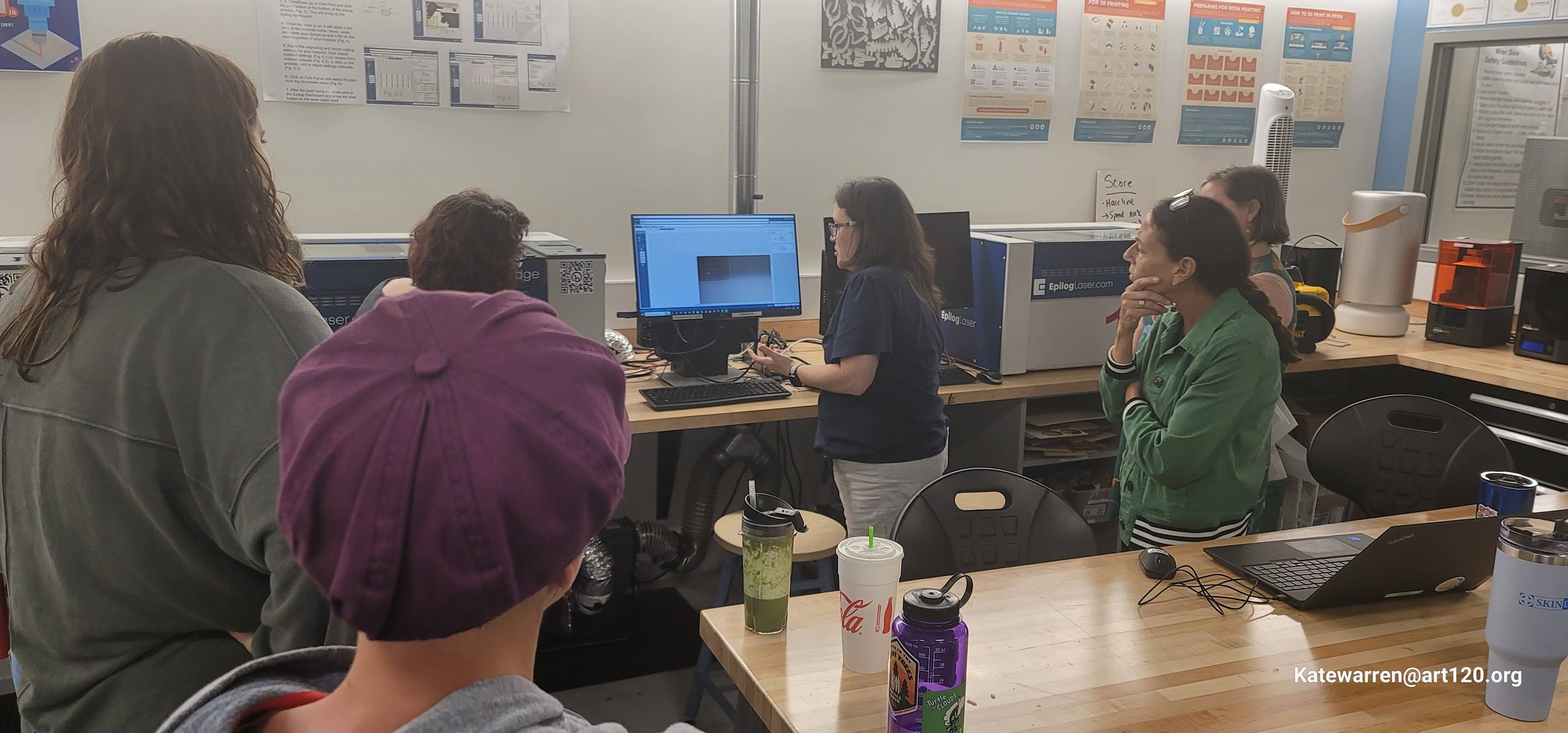2024 Art Education Teacher Training
By DeAsia Powell
Instuctors begin Teacher Training workshop with a general introduction
Program Objectives
After discovering the void of knowledge Hamilton County students and art teachers have on computer aided design/computer aided manufacturing (CAD/CAM), Art120 began this year’s Art Education Teacher Training Workshops with the initiative of spreading exposure and education on such resources to art teachers of Hamilton County. Two separate workshops took place for nine teachers. By the end of each workshop, teachers were confident with acquired knowledge and ready to incorporate it into their curriculum in preparatory and hands-on activities in schools and the greater community.
Course Operation Tactics
Practical education is the use of the most common computer design program used in schools; and in this year’s workshop, instructors based the classes off of a two-folded digital art program called, “CorelDRAW”. In order to effectively relay such a fresh concept to teachers, workshop Instructors took a step-by-step approach by beginning classes with a: “Tell, Show, Do, Review” introductory presentation, followed by an on-screen group presentation, and ending with one-on-one work with the art educators. Given many options were unknown to participants, specific emphasis was placed on readily available and economic options given the limited resources art educators have. To accommodate the limited resources available to educators, Art 120 selected CorelDRAW, affordable and alternative design programs like Adobe Photoshop, Adobe Illustrate, and Canva were also introduced to allow teachers to familiarize themselves with a variety of production options at little expense. Every teacher had immediate access to a variety of resources and was lended a laptop or tablet with CorelDRAW installed on it if needed to ensure full participation and engagement. They were also presented with a wide variety of material that can be engraved, cut, scored, or generally manipulated by computer aided design or manufacturing.
Challenges
Instructor works one-on-one with Woodmore art teacher Robin Jaglinski
One major necessity of working with educators in workshops is knowing how to overcome challenges that may arise while serving professionals with a wide range of knowledge. This year, a main obstacle was working with the general lack of familiarity art teachers had with computer-based art design, and the range of previous knowledge and experience in this field. This yielded groups consisting of a mixture of those who were unfamiliar with computer design, to former professional graphic designers. To combat this, course instruction began with teaching the basics, then solely touched on taking the actions necessary for meeting the goal of every teacher leaving with a complete physical piece of artwork relevant to their school activities. This approach balanced the engagement of those who were familiar with the program CorelDRAW and those who needed more assistance. This proved to be beneficial to the overall learning experience, as teachers began assisting each other through the process which fortified their knowledge. . Furthermore, by limiting the shared screen lecture presentations and emphasizing hands-on learning, and problem solving, the majority of concerns or questions were resolved.
The next hurdle that we faced is dealing with the timeframe of when the workshops can take place. Because they are often pushed till the end of the school year, this minimizes the number of students the school visits impact. However, with more funding for school visits, this outcome will be improved by FY 2025
Another one of the major takeaways observed from these workshops was that teachers were so unaware of these possibilities available to them in contemporary manifestations of CAD/CAM in STEAM education, that they were amazed once they discovered how they can utilize and incorporate these programs into their curriculum. Presumably, in educational programming for art education, implementation of these resources are presumed complete once infrastructure and machinery was installed, so Art120’s next crucial tasks are ensuring future improved access and training with these resources.
Outcomes
Example of digital art teachers worked on
This year's workshop yielded many successful results, and will continue to grow its potential outreach to schools and the greater community. These workshops met the goal of enabling teachers to acquire knowledge on digital art and leave with a physical object relevant to their school’s activities. Before the workshop, more than 50% had little to no knowledge on how to use drawing programs and 70% had little to no knowledge on digital laser cutters. After the workshop, every teacher confidently knew how to prepare artwork on a computer program for output and produce it on a variety of materials including paper, wood, and acrylic. This new work will be implemented in the upcoming fall potentially impacting 4,469 students county wide. Outreach is guaranteed to succeed best in the primary grades as seven out of eight schools represented were elementary schools.
As this program was recognized on a county level, we plan to share our data with Nation of Makers and Maker Ed to make our program accessible for any art teacher interested. With Support from multiple grants, we were able to continue this program and attract the eye of Lyndhurst Foundation and earn their support in helping grow this program over the next two years.
Salutations
As we embark on another successful path to increase the exposure of art resources in our greater community and schools, we will strive to recruit passionate makers and community leaders to ensure our Hamilton County teachers and students have access to 21st Century learning opportunities.
Special thanks to Kristin Burrus, The Global Center of Digital Innovation, The Tennessee Arts Commission and The Lyndhurst Foundation for making this workshop possible.











